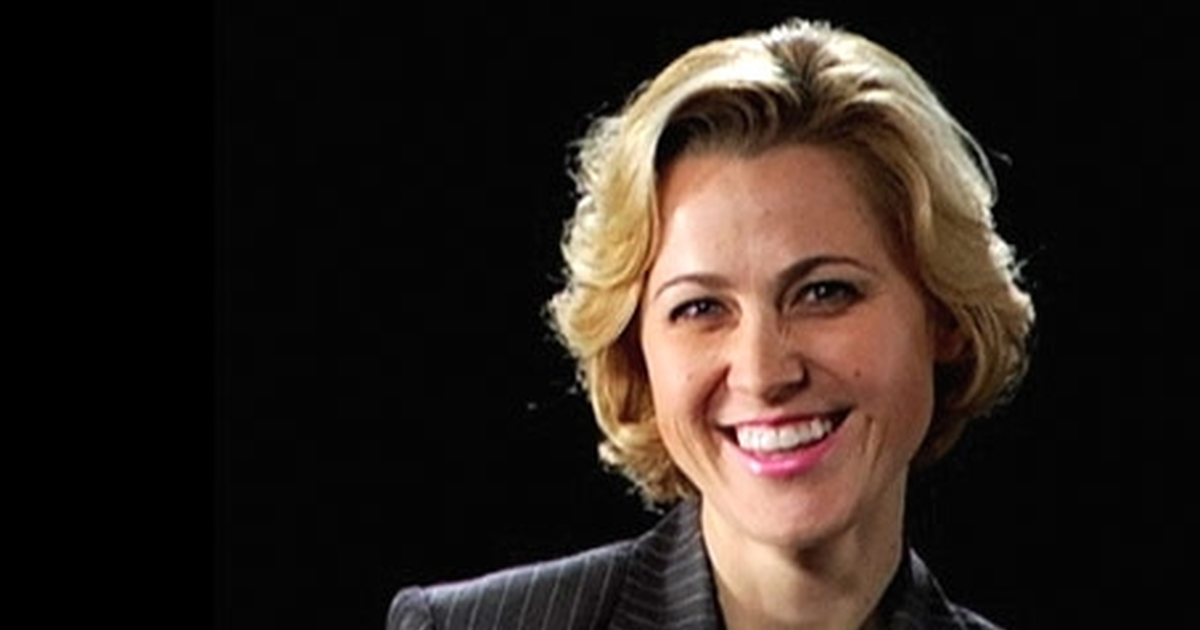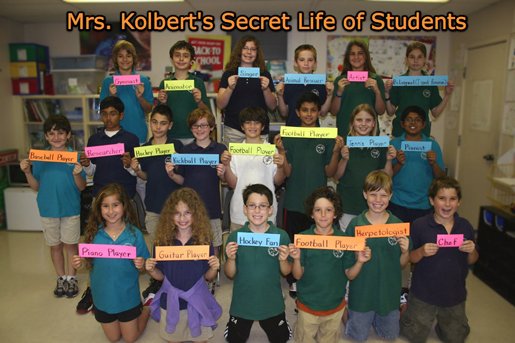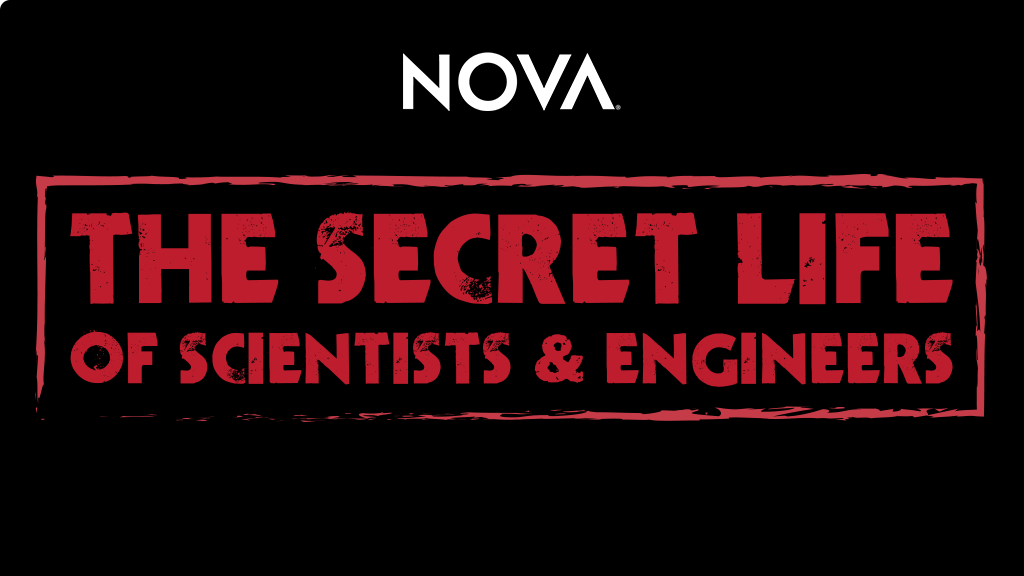Erika Ebbel
Erika Ebbel is a biochemist currently pursuing her Ph.D. at Boston University School of Medicine.

Meet biochemist Erika Ebbel in these videos and blog posts from NOVA's "The Secret Life of Scientists & Engineers." Erika studies Huntington's disease, examining plasma, urine, cerebrospinal fluid for clues to a cure.
“Competition encourages you to improve.”
Science:
Erika Ebbel is a biochemist. She started doing research on viruses in fifth grade and would like to cure ALS (Lou Gehrig’s Disease).
Secret:
Erika is a beauty pageant queen. She has used her pageantry to teach lots of kids about science. Butt glue is one of the more annoying aspects of her secret life.
Whiz Kid
Erika Ebbel learns from a great science mentor and then becomes one.
Miss Massachusetts
Erika Ebbel takes off her lab coat and puts on a tiara.
30 Second Science with Erika Ebbel
We give Erika Ebbel 30 seconds to describe her science and she only needs 25.
10 Questions for Erika Ebbel
We ask Erika Ebbel 10 questions and she shows us how to wave.
Erika, Mrs. Kolbert, and The Kids
This post is from Florida teacher, Lee Kolbert, who recently used video conferencing to arrange a meeting between her fourth graders and our beloved Secret Lifer, Erika Ebbel. (And see our update below with Lee on TV!)

Fourth graders have secret lives too: animators, chefs, artists, herpetologists, tennis players, etc. What do growing crystals, measuring centipedes, and Butt Glue have in common? They are among the many things my students learned about last week while videoconferencing with “Secret Life of Scientists” celeb, Erika Ebbel. Most kids imagine scientists to be rather geeky, with their entire day’s schedule filled with test tubes and data charts but the “Secret Life” series does a great job of breaking that stereotype by profiling successful scientists who are also jugglers, extreme athletes, rock stars, foot photographers, and beauty queens! Yes, beauty queens! And so, Erika is an MIT graduate, current biochemist, and a beauty queen who won Miss Massachusetts in 2004. So, when I was approached to blog about Erika, my response was, “How about a videoconference instead?” What a great opportunity for my 4th graders to learn something about stereotypes and science at the same time.
The timing was actually perfect because we were in the midst of our Science Fair projects. So, I figured, why not encourage the students to ask Erika questions pertaining to their projects (in addition to any other questions they may have). The students and I prepared by watching Erika’s videos from the site and having some brief discussions in class.
Self Improvement
We’d asked Erika Ebbel to bring lots of props from her pageant days for her interview with us. And she came through big-time—it was gowns and crowns all around! (Sadly, we didn’t learn about a certain “adhesive” prop until we actually did our interview with Erika—then again… watch her “10 Questions” to learn more.) Erika couldn’t have been more gracious and generous during the entire process—following the main part of her interview, she performed various pageant-queen walks and waves for our cameras and even gave us tips on pageant interviewing (turns out you don’t have to talk about world peace—if only we’d known…). It was already clear to us that Erika was an exceptional scientist, truly committed in her efforts to find ways to treat and maybe someday cure diseases like Huntington’s Chorea and ALS. When we saw her do the pageant thing in our studios, though, it seemed like she was a natural at that, too. But she wasn’t.
In fact, after her first pageant (the one for which her MIT friends volunteered her, as per her “Miss Massachusetts” video), Erika didn’t think she’d participate in any more pageants—that is, until a phone call with her Dad: “I called my parents, who didn’t attend that pageant, because they were in California, and I told them about it. And I remember my father, who I was totally convinced would have told me, ‘Don’t bother, don’t waste your time—you have more important things to do.’ He said, ‘You know, you might consider doing it again. Did you learn anything from the experience?’ ‘Yes….’ ‘Did you have a good time?’ ‘Yes….’ ‘Do you see this as a way of improving things about yourself?’ ‘Yes.’ Big yes to that. And so, I thought to myself, ‘Maybe I should do this again. I’ve learned a little bit. I’ve seen it once. I know what it’s about—and it was fun and I made friends.’”
Using the same determination that had helped her win dozens of science fairs and thrive as a student, Erika systematically figured out the steps she needed to become a pageant winner. And within a few years, she was the first woman from MIT to ever be crowned Miss Massachusetts. She explains….
“It was not about comparing myself to the other contestants and deciding ‘Where do I size up, relative to everyone else?’ No, it was about, ‘How can I improve myself, so I can be the best of what I am?’ You know, I will never be like these other people—I will be me. But I can be a better me than what I was. And so, it was three years of analyzing what I needed to do to improve myself, so I’d be in a happier place. And that’s what I did.”
And she’s got the tiara to prove it.
Ask Erika your questions
Erika Ebbel is going to answer your questions while curing several diseases and executing a perfect pageant-queen wave!
Q: Do you think that researchers will be able to find cures for neurological diseases? Are they “coming close” in their efforts? I am personnally interested in Multple Sclerosis.
Erika Ebbel (EE): I hope that researchers will be able to find cures for neurological diseases. What makes it difficult is that, we are still learning about the diseases themselves. Researchers are gradually making progress understanding the disease mechanisms behind ALS, MS, Huntington’s Disease, etc. Still, much is unknown. Once these diseases are more fully understood, I think that we will be closer to finding “cures.”
Q: I understand that the first beauty pageant objective would be the competition winner. What always is your second wishing after each of your competition? Does a biochemist have been scheduling a deadline time frame on any kind of case study research?
EE: It is true that it is nice to be the competition winner. However, I think it was always more important for me to learn and improve from the experience I was going through. Hence, each time I competed I tried to improve myself in some capacity. I would say this was really the most important focus.
Regarding your second question, which is about deadlines; it depends on the study. Some samples are time sensitive, meaning that once you start working with them you have to complete the project in a certain amount of time before the samples are ruined. In general, planning out experiments so that you are able to finish all steps of a particular portion of your research at once means that you lessen your chance of introducing confounding factors such as contamination, deterioration of samples over time, etc. Also, it is nice to feel like you are making progress, so at least in my case, I like to get as much work done as possible when I have the chance!
Q: You mentioned that you are studying the difference in composition of a healthy sample to a diseased one in hopes of finding the difference and a way to correct that as a treatment. Will this method be useful in the long run in finding a cure or will that require much more work to find the root cause and correct it at that level? In your view is there a big difference between a “cure” and a “treatment”?
EE: We think that in order to discover a cure, one first needs to fully understand the disease itself. Hence, comparing healthy versus diseased samples essentially allows one to determine biochemical differences between the samples. Once one understands the differences he/she is able to hypothesize what biochemical pathways may be disturbed in diseased patients. Understanding this helps to further understand the mechanism of the disease itself. After the mechanism is understood, it is easier to come up with potential treatments, because one knows what it is that he/she is trying to “cure”.
In my opinion there is a difference between a “cure” and a “treatment”. In the case of a “treatment” you are essentially treating “symptoms”. Symptoms, however, can be caused by downstream pathways affected by the disease. Thus, the patient could be diseased long before any symptom is ever seen. Just like when you have the flu, you take decongestants. These decongestants do not necessary help to kill the virus, instead they help you to breathe easier (congestion being a symptom of the viral infection). A cure is much more complicated, because it requires addressing the factor causing the disease.
Hence, finding the underlying cause of the disease is very important.



